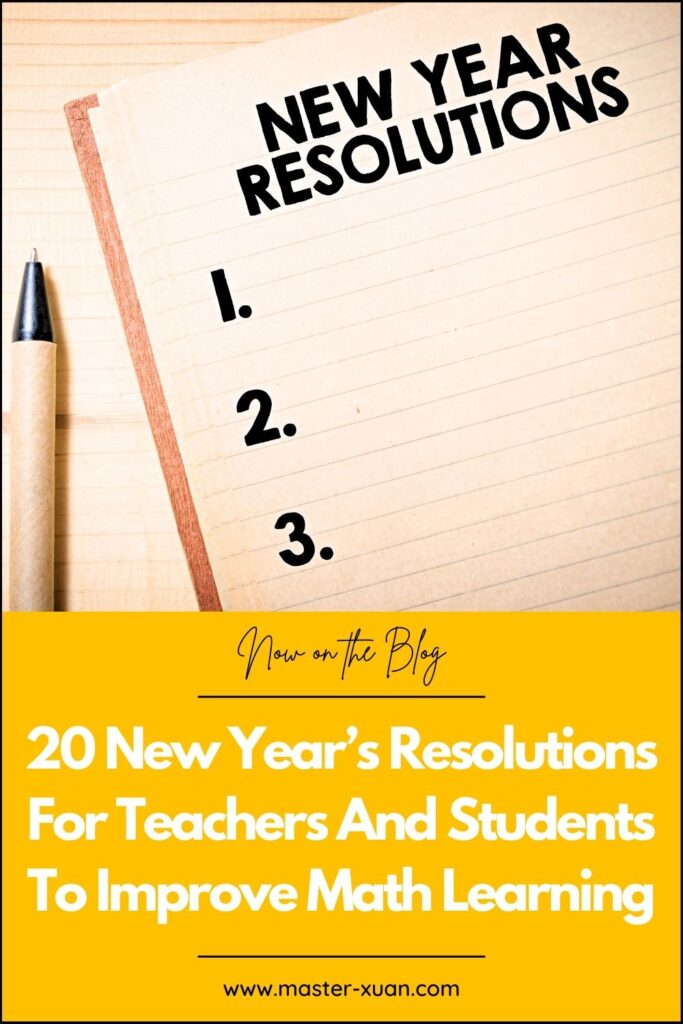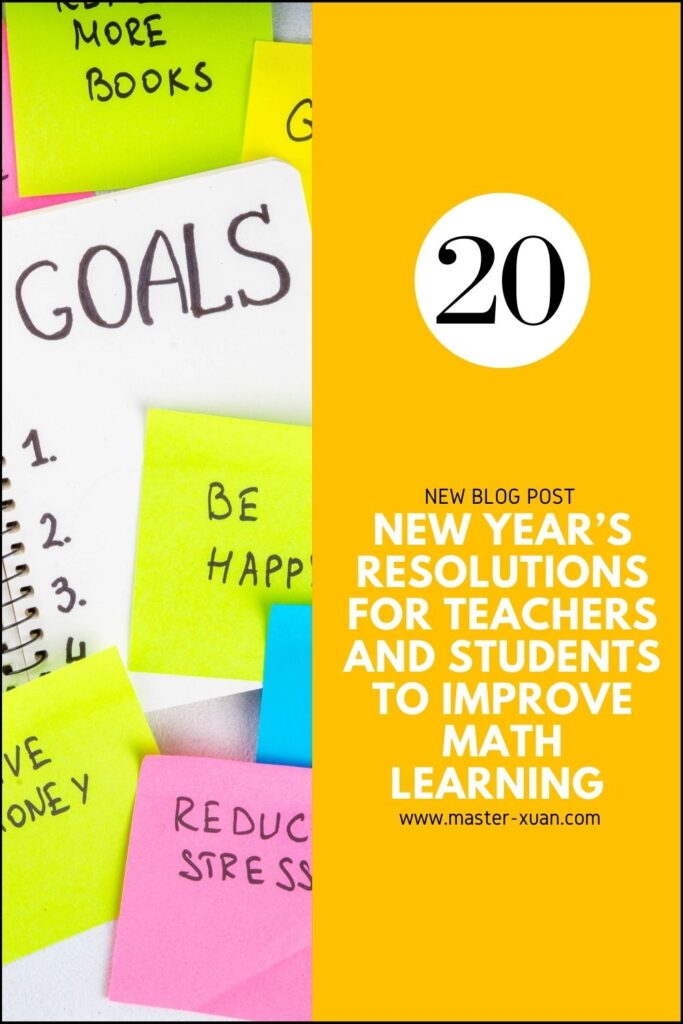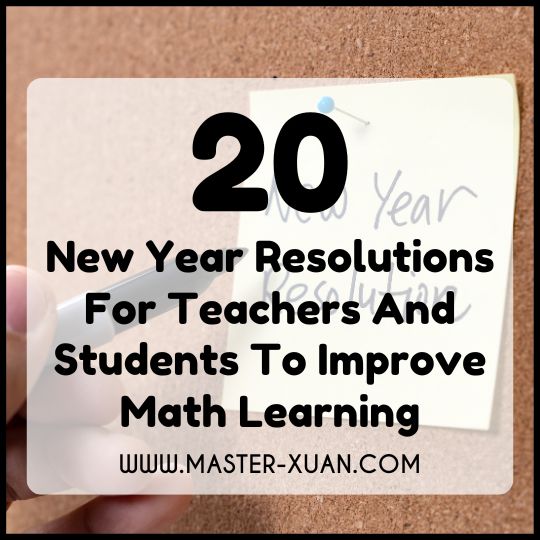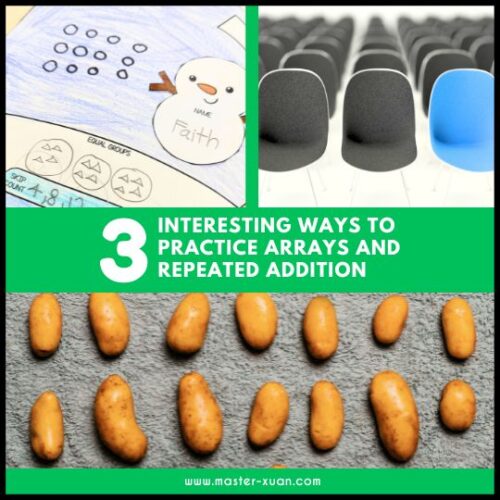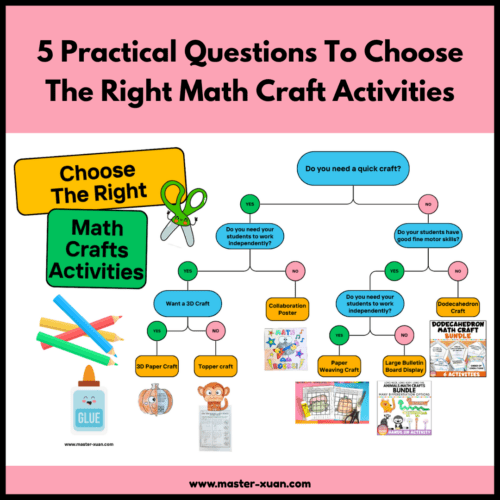In this blog post, I will share with you 10 practical New Year resolutions for teachers and 10 New Year’s resolutions for students that will help improve math learning.
This is the time of the year where we like to start setting goals as a new year feels like we can restart and start afresh.
But like all goals, just writing it down is of no use. Instead we need to place them at a visible place to remind ourselves about it and to act upon it.
Whether you’re a teacher or a student, setting specific goals can significantly enhance your math learning experience.
I hope this blog post can inspire you and make the new year a better year!
What Is A New Year’s Resolution?
A New Year’s resolution is a promise or commitment that you make to yourself to start doing something good or stop doing something bad on the first day of the year. It’s a way to set goals and make positive changes in your life.
Why Should Teachers Write New Year Resolutions?
Professional Growth: Teachers, like everyone else, can always strive to improve their skills and knowledge. Setting resolutions helps them identify areas where they want to grow.
Student Success: Teachers who set goals for themselves are more likely to create a positive learning environment for their students.
Motivation and Focus: Writing down new year resolutions for teachers provides a clear sense of direction and purpose. It helps teachers stay motivated throughout the year and prioritize tasks that align with their goals.
10 New Year Resolutions For Teachers
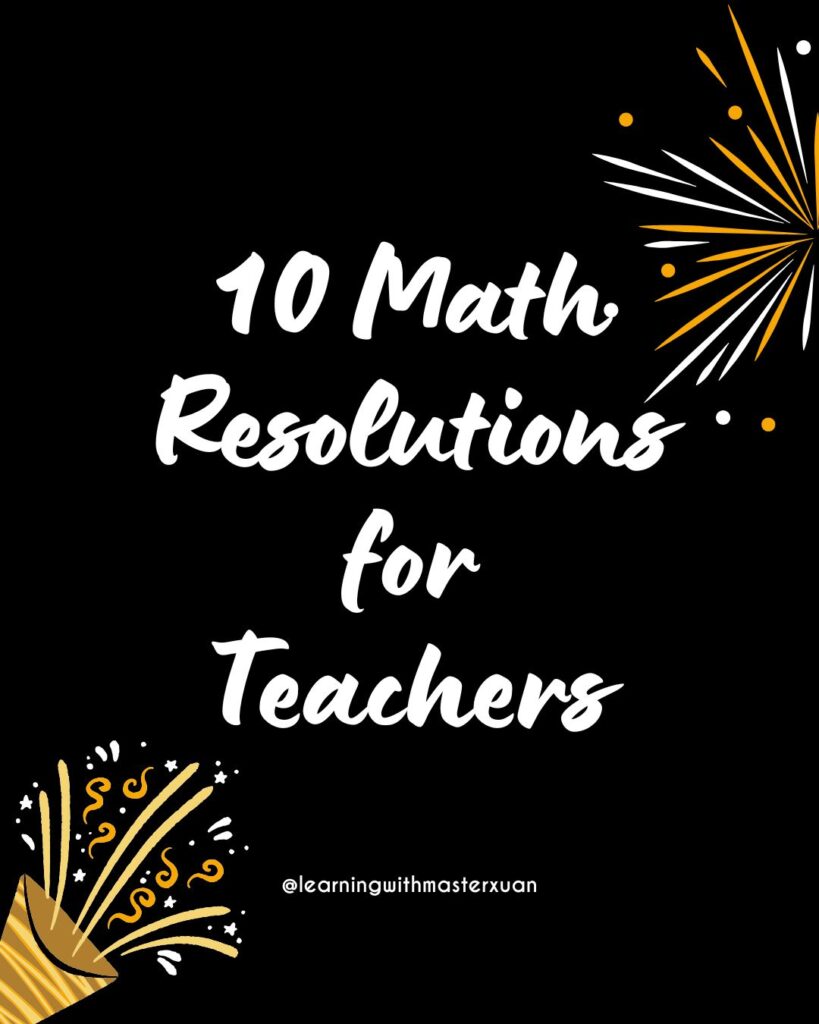
1) Focus On Conceptual Understanding
Let’s face it, sometimes it’s tempting to take the shortcut and teach them the quickest way to solve a problem or just give students the answer. But true learning happens when we take the time to understand why things work the way they do.
So this year, let’s prioritize understanding.
Instead of rushing through problems, let’s encourage students to think critically and fully understand the concept.
You can use visual aids and hands-on tools to clarify complex topics.
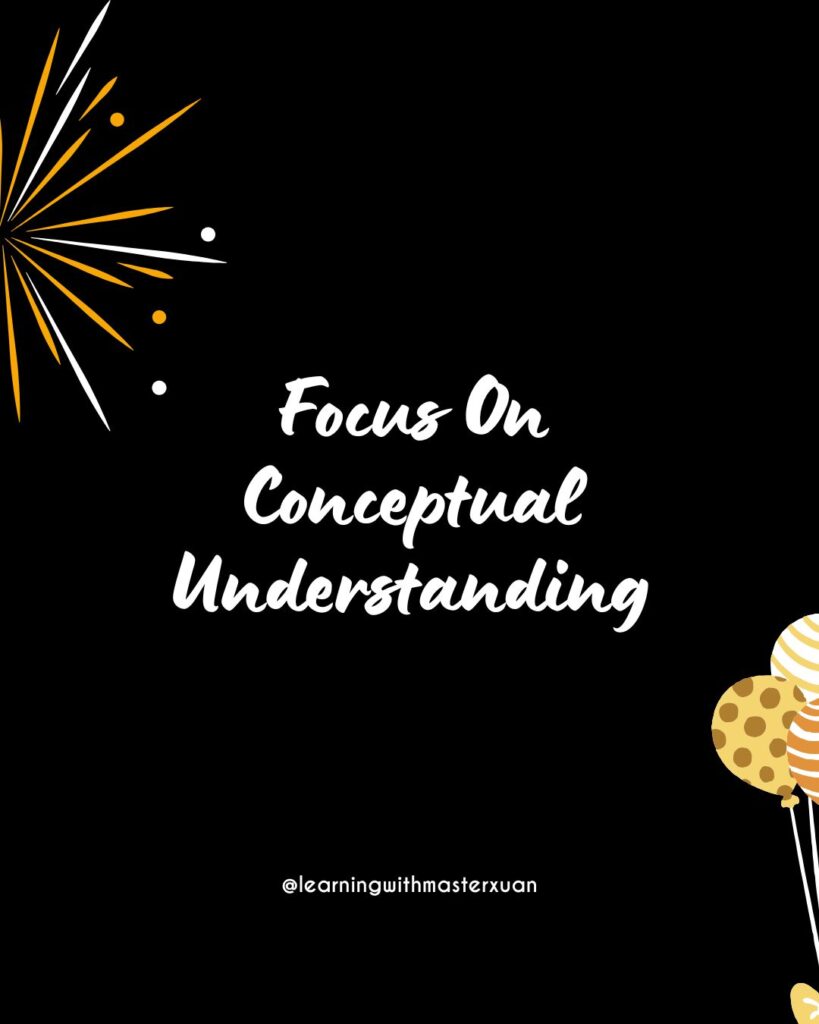
2) Incorporate Real-World Applications
Connect math concepts to everyday scenarios. Give more real world examples instead of relying on word problems or make up questions.
For example, show them a real advertisement when you talk about percentage change or discount. Or let them guess and compare the weight of different items you found in the supermarket.

3) Make Math Fun With Creative Activities
Make this year different for you and your students by trying out new activities.
Incorporate games, puzzles, and crafts into lessons. Interactive experiences enhance understanding and engagement.
There will be activities that also have rigorous practice so you wouldn’t sacrifice your academic goals for fun.
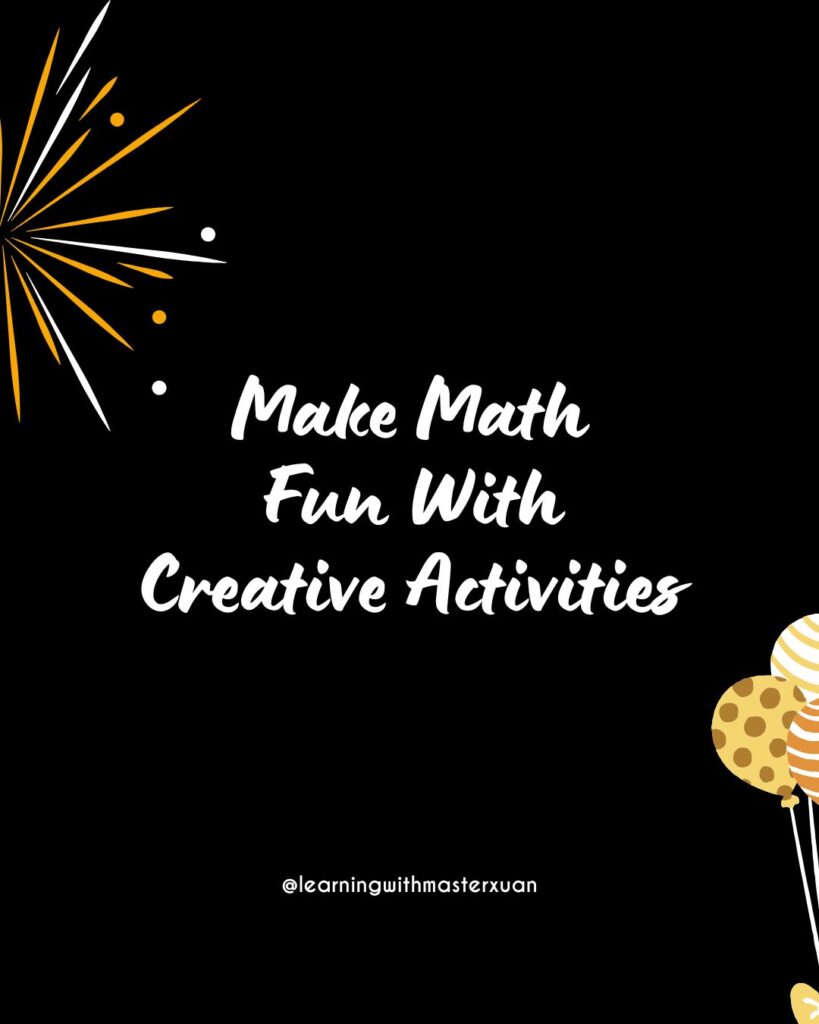
4) Foster A Growth Mindset
As teachers, we know the importance of having a growth mindset. But the reality is we have no time to constantly reinforce this message to our students.
So this year let’s try to incorporate growth mindset into daily routines:
- Begin each class with a quick “growth mindset moment,” sharing inspirational quotes or stories.
- Use specific praise that focuses on effort and strategies, such as “You worked really hard on that problem!” or “I like how you approached that challenge.”
- Create a classroom culture where mistakes are seen as opportunities for learning and growth.
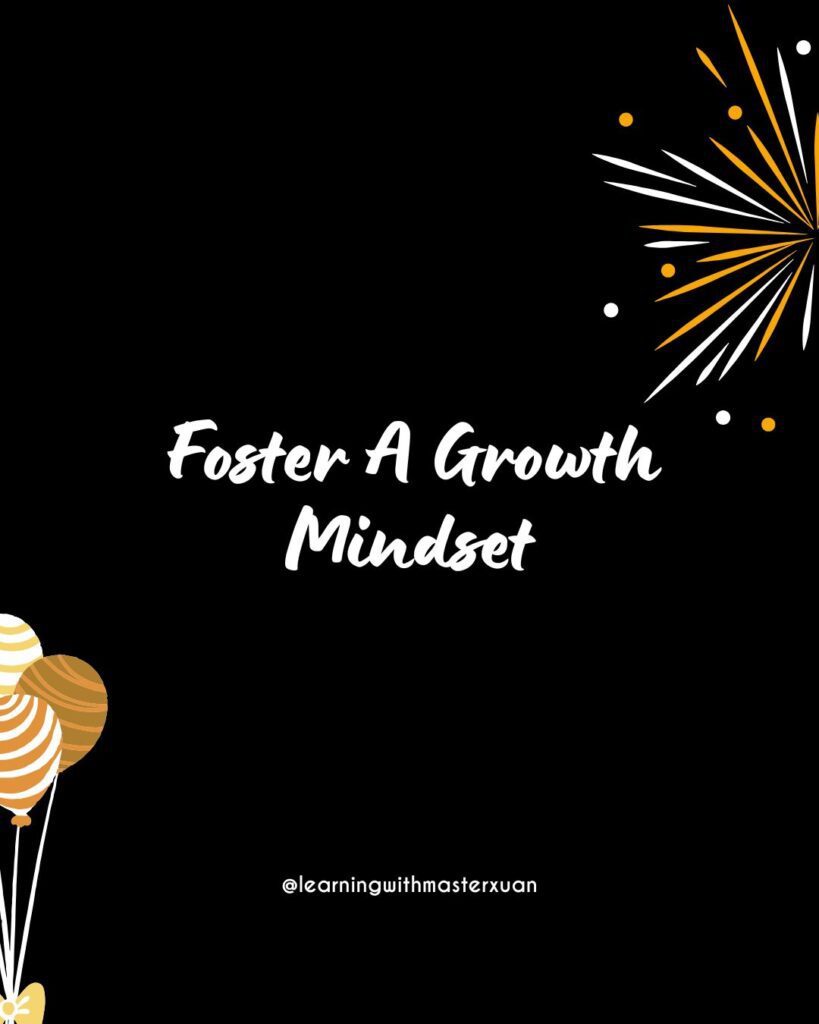
5) Celebrate Achievements Regularly
Little wins fuel big victories.
Make it a point to acknowledge and celebrate your students’ progress, no matter how small.
This could be as simple as a verbal “Keep up the good work!” or a personalized note.
For larger achievements, consider rewards like stickers, small prizes, or special privileges.
Remember, positive reinforcement is key to maintaining motivation. By celebrating their successes, you’re encouraging your students to keep striving for their best.
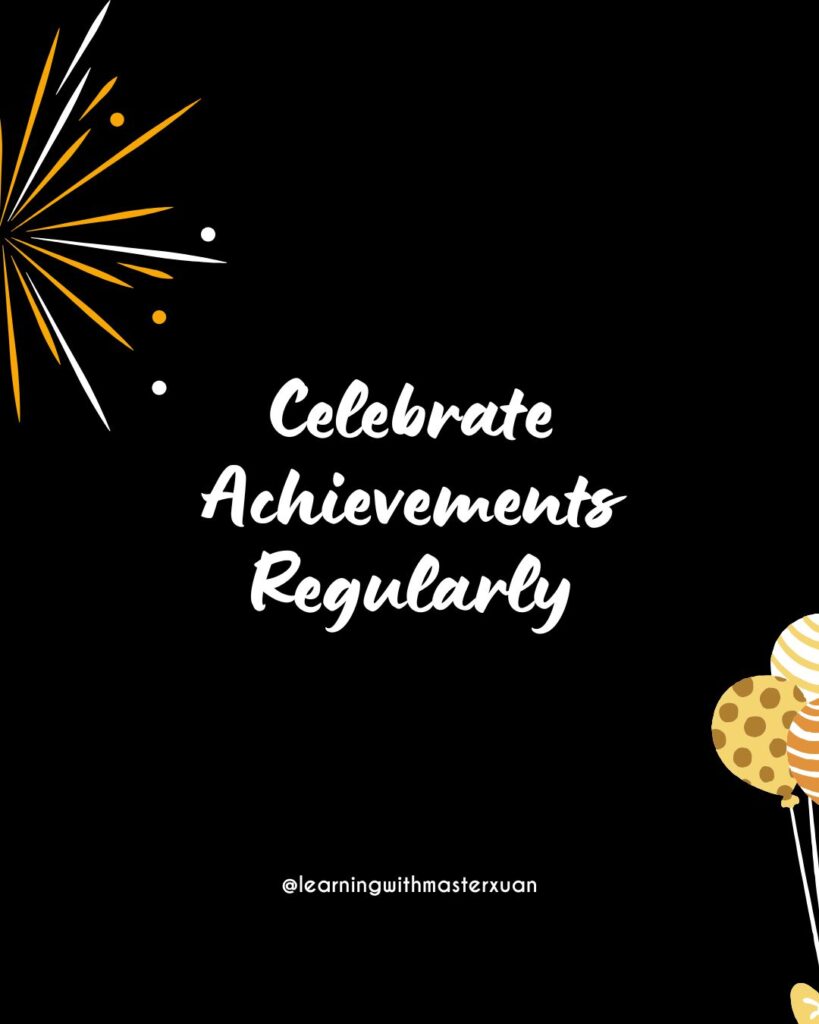
6) Make More Effort To Differentiate
One of the biggest challenges teachers face when implementing differentiated instruction is time constraints.
With large class sizes and a packed curriculum, it can be difficult to find the time to plan and prepare diverse learning activities for each student.
Another challenge is resource limitations. Teachers may not have access to the necessary materials, technology, or support staff to effectively differentiate instruction. This can lead to frustration and a feeling of being overwhelmed.
But we all know that differentiating instruction ensures that every student receives the support they need to succeed.
When teachers tailor lessons to individual needs, students are more likely to be engaged and motivated.
This leads to a deeper understanding of math concepts and improved problem-solving skills.
So to overcome these challenges, teachers can implement the following strategies:
- Prioritize: Focus on key concepts and skills that are essential for all students.
- Flexible Grouping: Group students based on their needs, interests, and learning styles.
- Tiered Assignments: Create assignments of varying difficulty to challenge all students.
- Choice Boards: Offer students a variety of activities to choose from, allowing them to work at their own pace.
- Technology Integration: Utilize educational technology to personalize learning experiences.
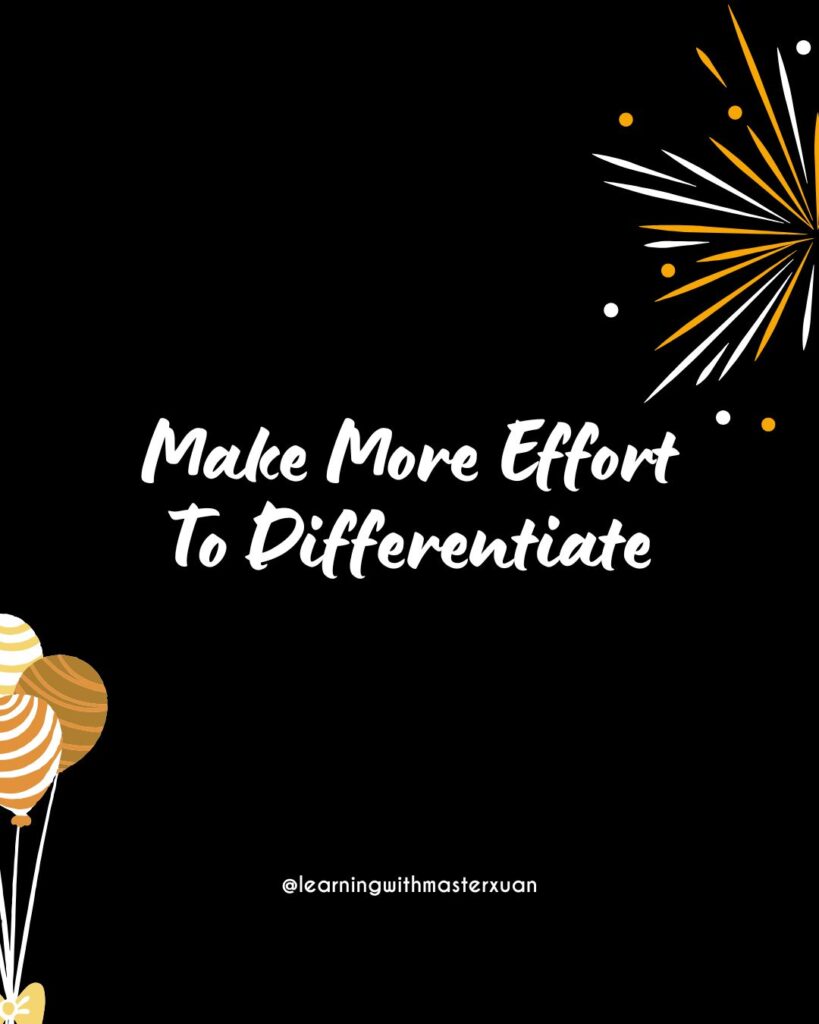
7) Make More Effort To Communicate Better
Teaching can be demanding especially when we have to face so many children and parents who may not have the ability to communicate effectively.
Sometimes the stress and emotions can get over us and we may say something that we may regret later or get into trouble with.
Miscommunication can lead to misunderstandings, frustration, and conflict.
It’s important to acknowledge the challenges and develop strategies to improve communication.
- Active Listening: Give your full attention to the speaker, avoid interrupting, and ask clarifying questions.
- Empathy: Try to understand the other person’s perspective and feelings.
- Positive Language: Use positive language to build rapport and avoid negative connotations.
- Clear and Concise Communication: Express your thoughts clearly and concisely, avoiding jargon or complex language.
- Seek Clarification: If you’re unsure about something, don’t hesitate to ask for clarification.
- Practice Patience: Take your time and respond thoughtfully, especially in stressful situations.
- Mindful Communication: Before speaking, take a moment to consider the impact of your words.
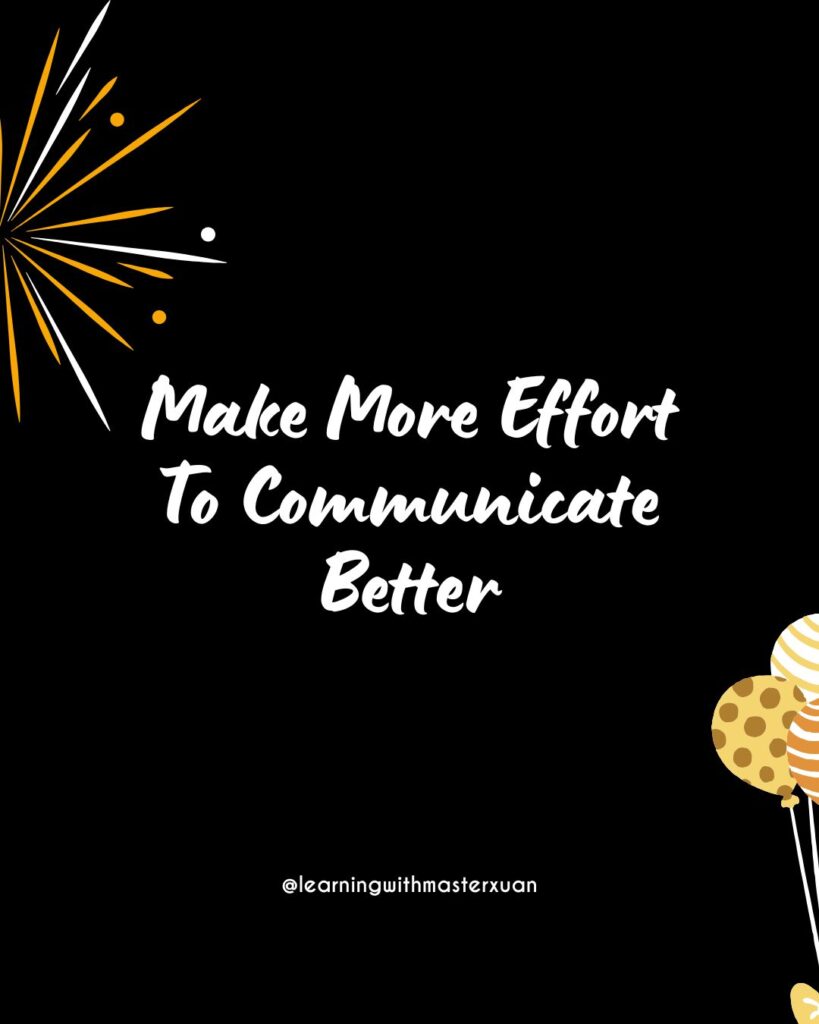
8) Use Technology Wisely
Explore innovative math tools and apps to make learning interactive and engaging.
We can also use educational software to create personalized learning experiences for your students.
Related Read: 5 Free And Useful Websites For Teaching Resources That Engage Students

9) Keep Learning
There is always room for improvement. Don’t be afraid to try new teaching methods and activities.
Experimentation can lead to innovative and engaging learning experiences for your students (and yourself).
It can be daunting, time-consuming but also a change of routine for you. If you are excited about trying new strategies, the vibe that you emanate will be positive too.
Your positive attitude and enthusiasm will also be contagious, inspiring your students to embrace new challenges and approaches to learning.
Here are some ways you can learn:
Attend Workshops and Conferences: Stay up-to-date on the latest trends and research in math education.
Online Courses: Take online courses to develop new skills and knowledge.
Mentorship: Seek guidance from experienced math educators to gain valuable insights.
Articles & Books: Explore topics such as effective instructional strategies, assessment techniques, and curriculum development.
Social Media or Blogs: Some teachers share bite-size classroom management or interesting teaching strategies that you can adopt.
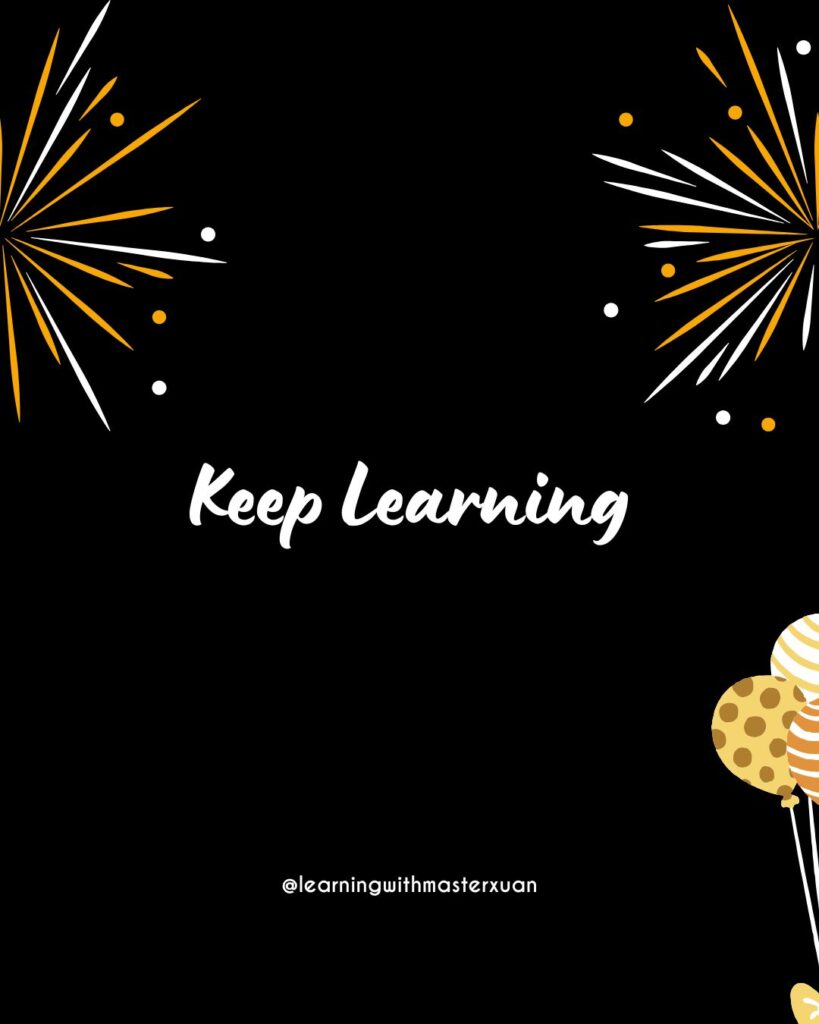
10) Reflect After Every Math Lesson
Make time for reflection else you wouldn’t!
By taking the time to reflect on your lessons, you can identify areas of strength and weakness, and make necessary adjustments for future instruction.
Self-Assessment: Consider your teaching performance, student engagement, and lesson effectiveness.
Student Feedback: Gather feedback from students through surveys, exit slips, or informal discussions.
Make your students reflect and go through what they have learned for the math lesson so that they can solidify their understanding and identify any areas where they need further support.
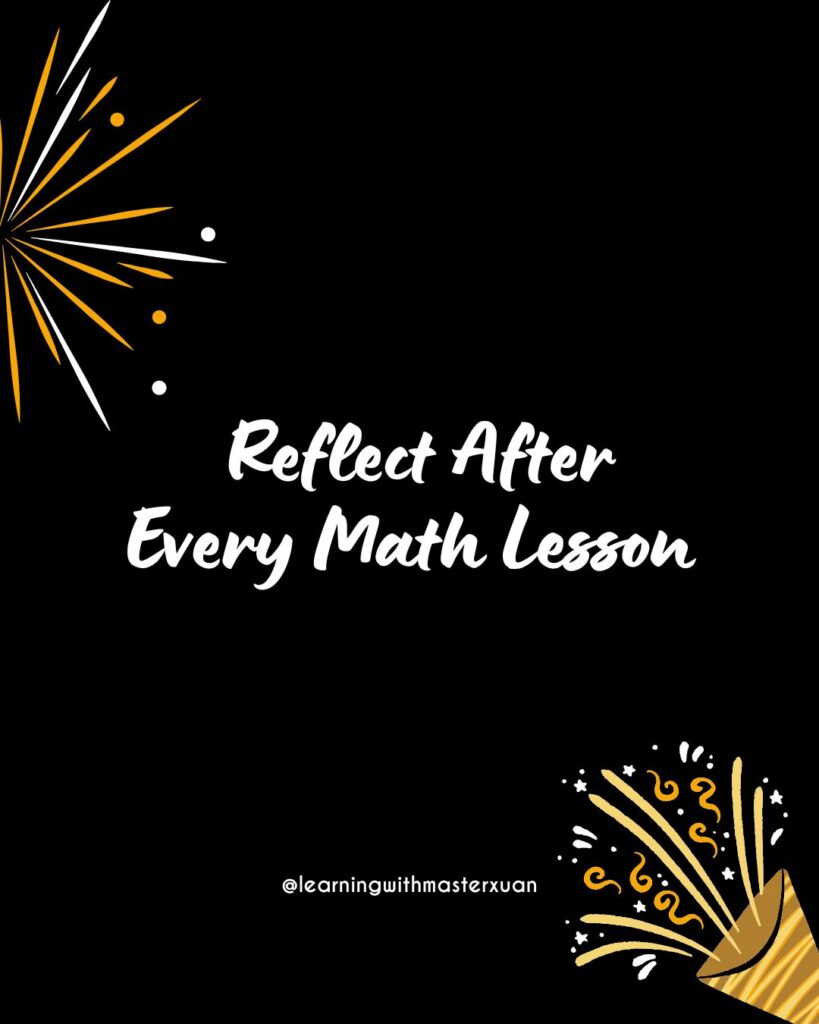
10 Math New Year Resolutions for Students To Improve Math Learning
These 10 goals are a teacher’s dream come true if students are able to achieve them. You can share with your students these 10 goals and let them choose.
1) I’ll Follow The Plans To Improve Math
It is no use if students follow all the correct ways to set specific goals but don’t follow through.
So after breaking down math goals into smaller, achievable steps, ensure they do as planned and track their progress!
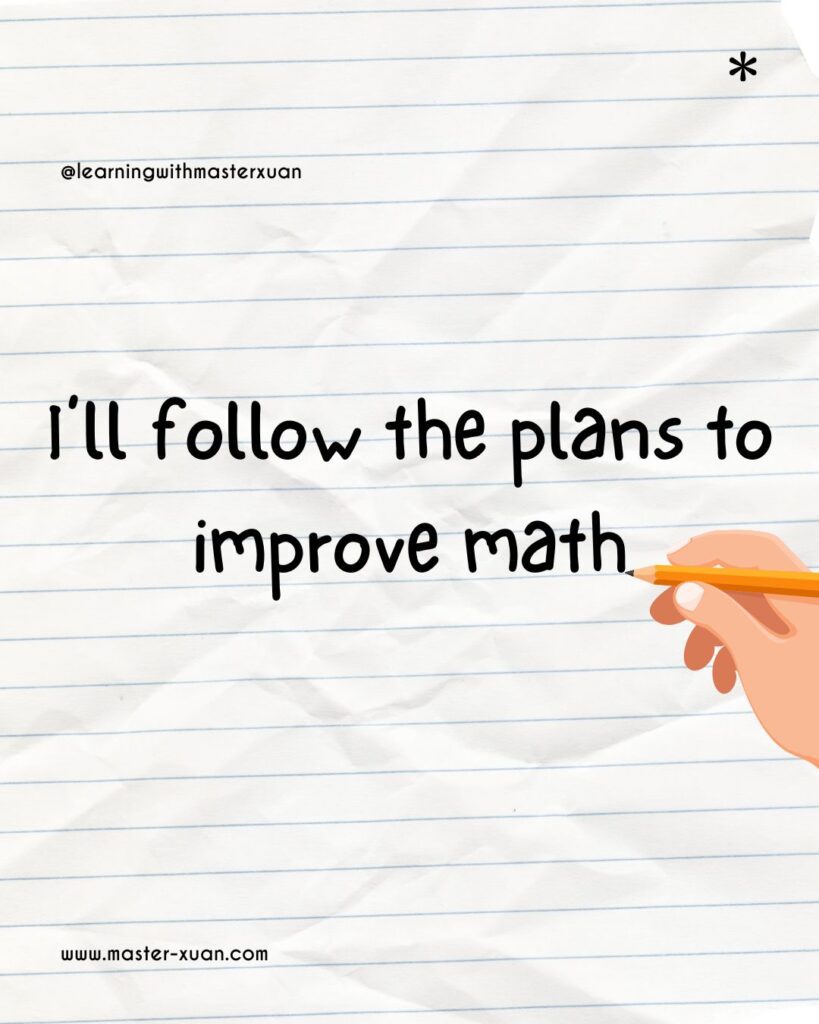
2) I’ll Use My Time Wisely
One way to do so is to create a timetable and stick to it.
This means they will make the effort to focus and not procrastinate anymore!
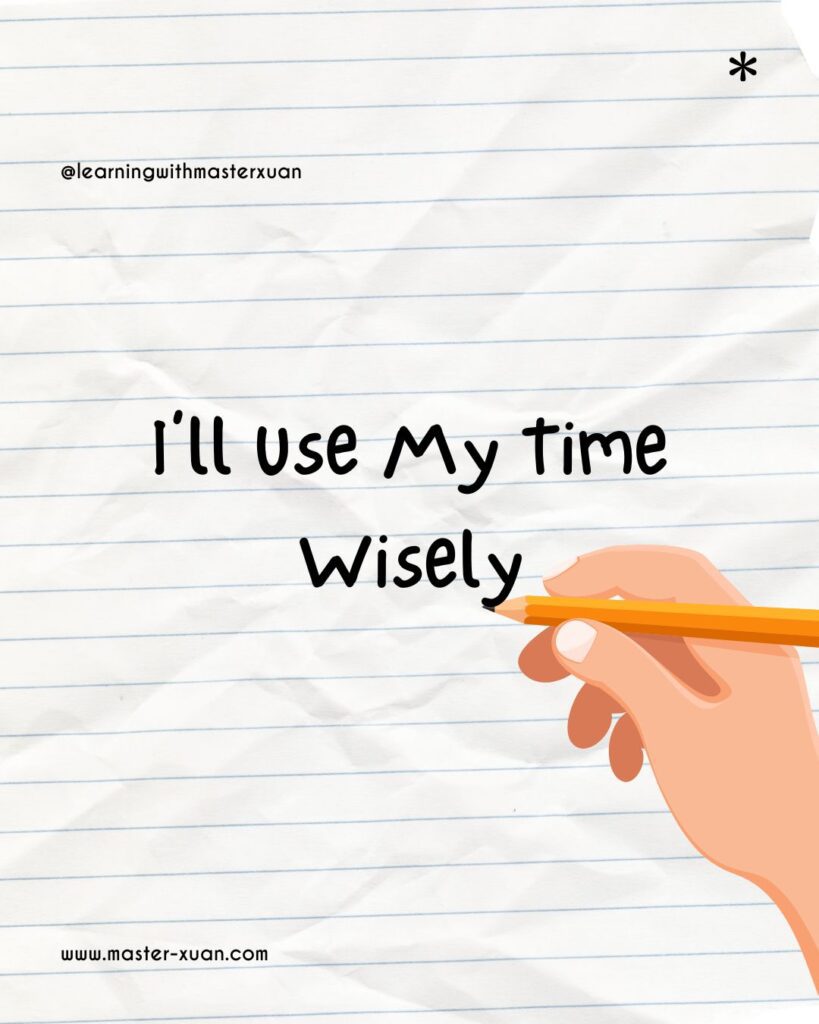
3) I’ll Practice Regularly/15 Minutes Per Day
Consistent practice is key to mastering math concepts. Dedicate time each day to review lessons and solve math problems.
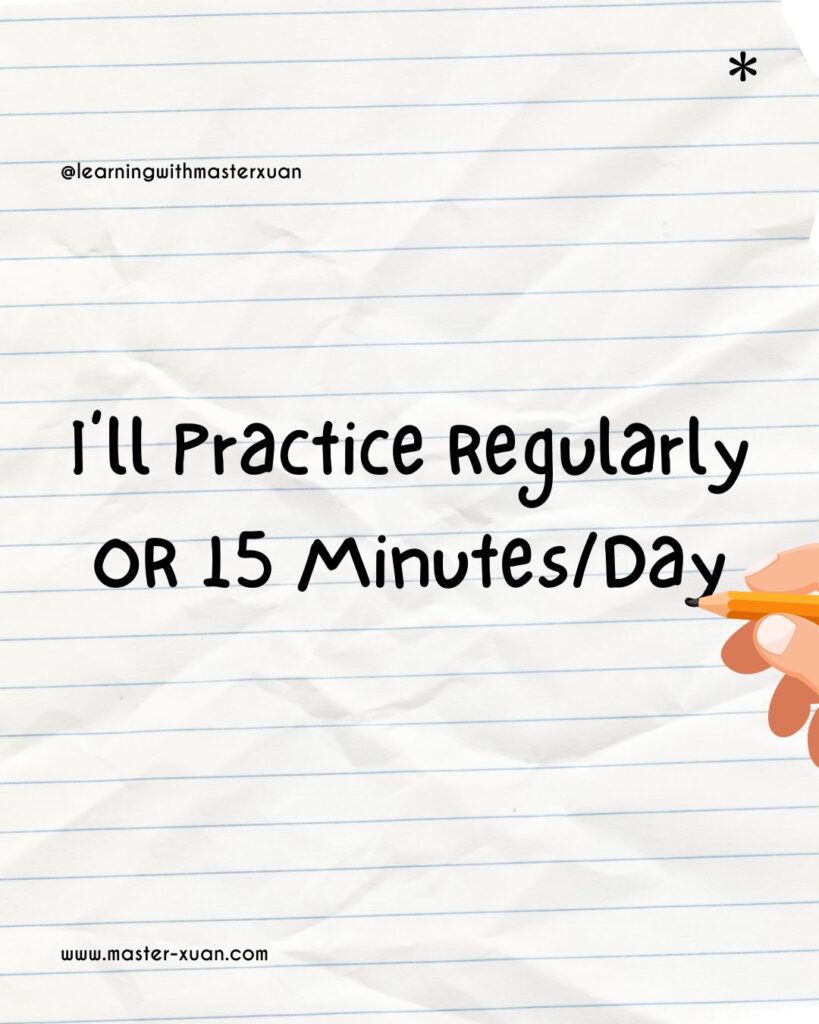
4) I’ll Do All My Math Homework In Time
This is a great New Year’s resolution for kids who sometimes forget to do their homework! To help them stick to it, they can:
- Set a Homework Time: Pick a specific time each day to do homework.
- Use Reminders: Set alarms or use a planner to remind themselves.
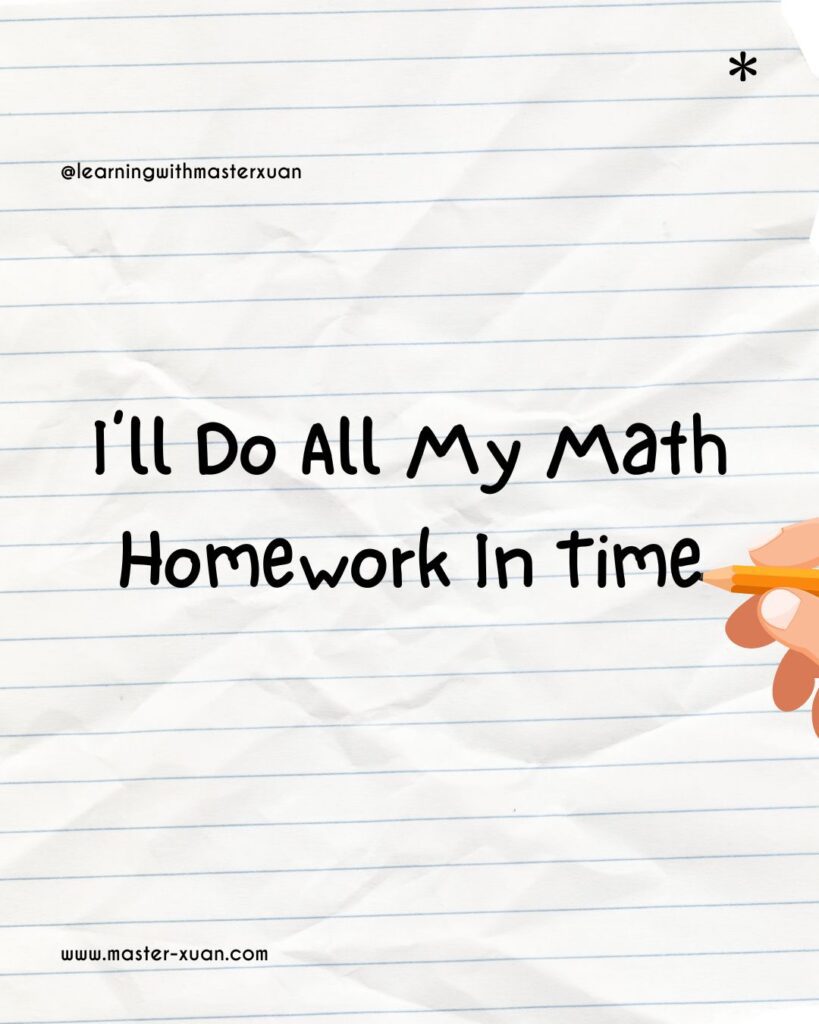
5) I’ll Embrace Challenges / I’ll Try Even If It Is Hard
Don’t shy away from difficult problems. View challenges as opportunities to learn and grow.
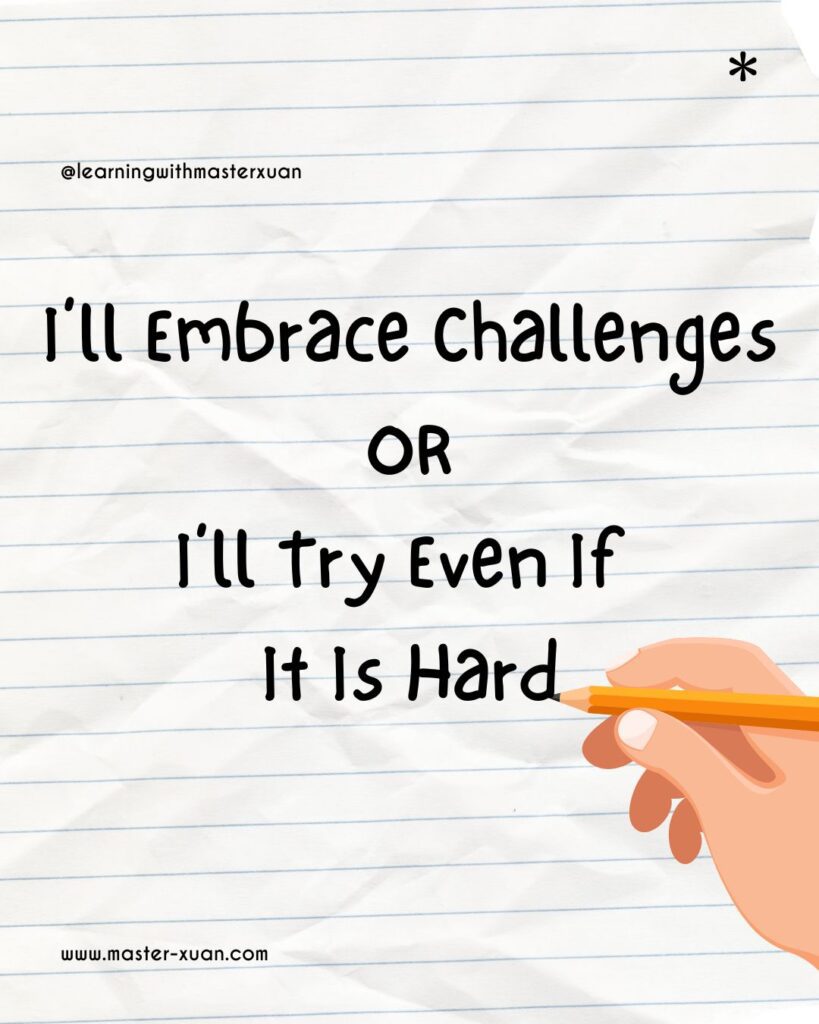
6) I’ll Check My Work
Encourage your students to take a few minutes to review their work after completing a math assignment or test. This simple habit can help them catch careless errors and improve their accuracy.
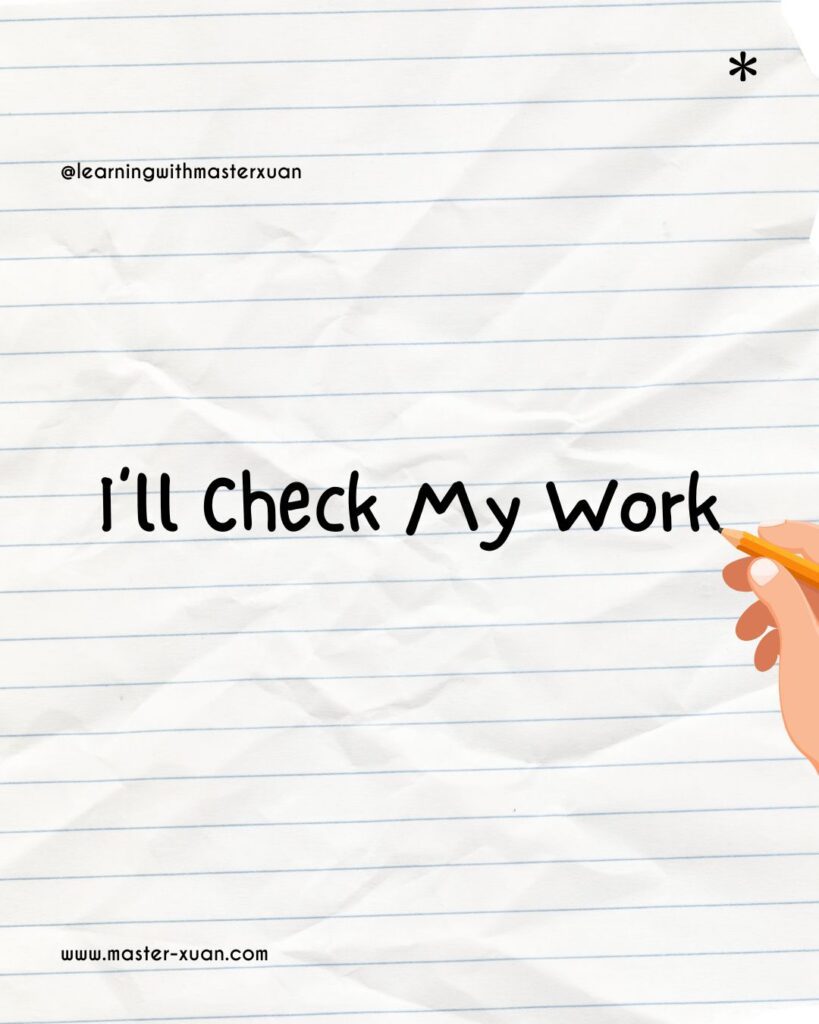
7) I’ll Learn From My Mistakes
It’s super important to learn from our mistakes!
Let’s make a “Mistake” folder or notebook. Every time you get something wrong, write it down.
Before a big test or during weekly revision, review these mistakes to make sure you don’t repeat them.
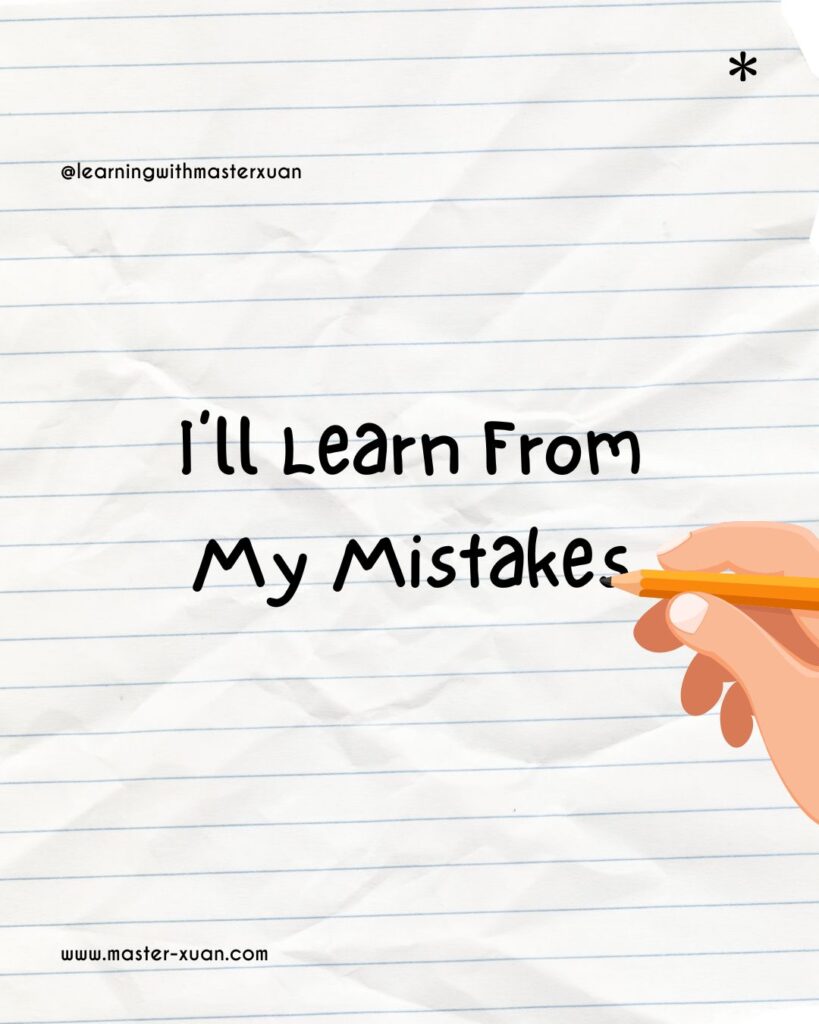
8) I’ll Show My Workings
Some students can do mental math and like to save their energy by simply writing the answer.
Encourage your students to show their work for every problem, even simple ones.
This will help them develop their problem-solving skills and identify any errors in their thinking.

9) I’ll Study For My Math Tests
While daily practice is important, revising before math tests are also important!
Remind your students to study regularly for math tests. They can create a study schedule, practice past exam papers, and form study groups with classmates.
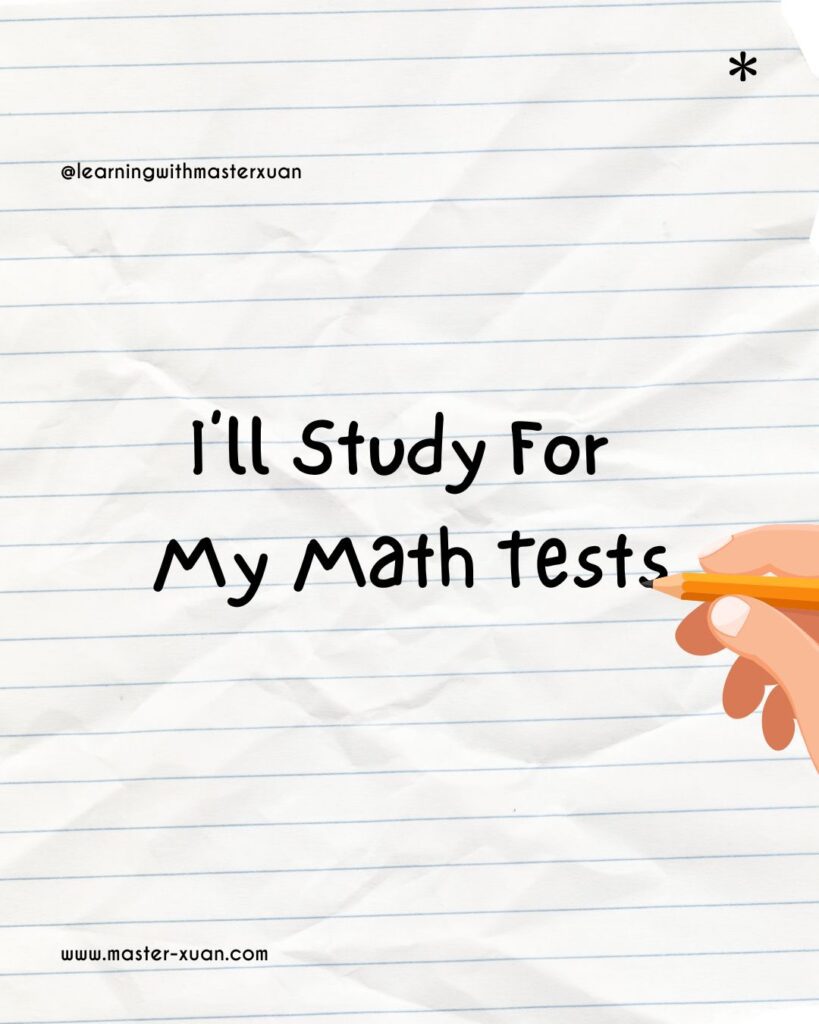
10) I’ll Improve My Math Score
Emphasize the importance of setting realistic goals and celebrating their achievements. By setting small, specific, achievable goals, students can stay motivated and experience a sense of accomplishment.
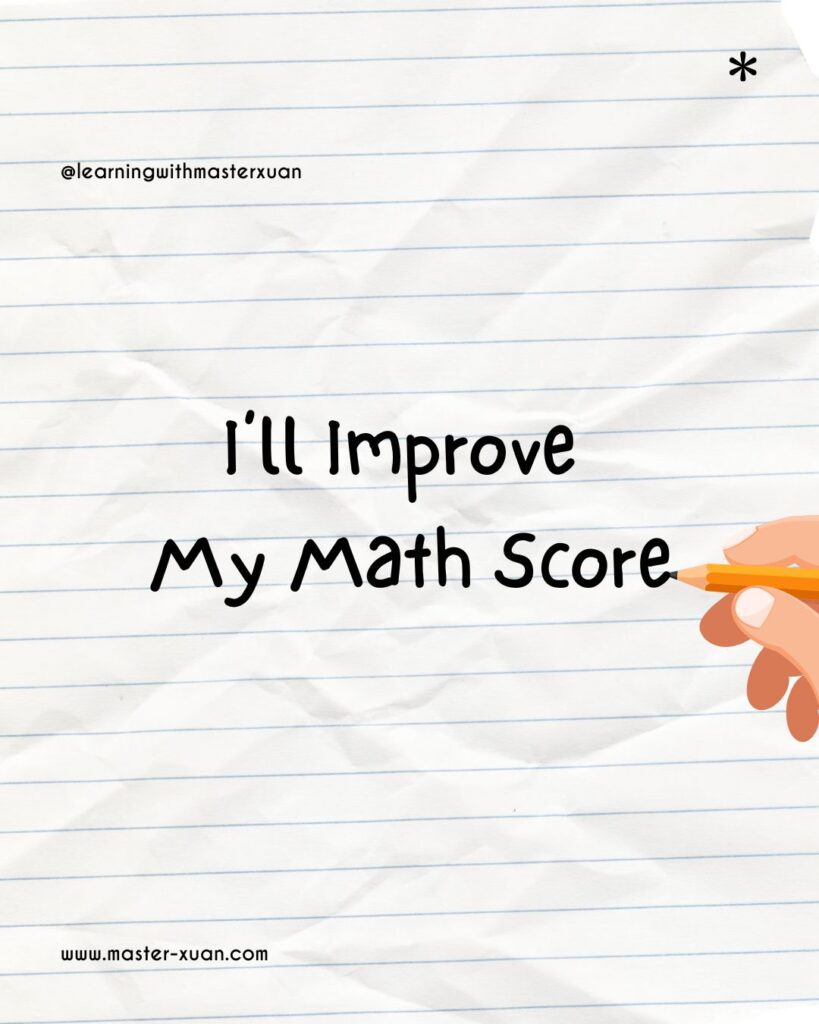
Final Thoughts
By setting and achieving these goals, teachers and students can achieve significant improvements in math learning.
If you need resolution pages for your students to write their resolutions or goals down, check out the exclusive bonus in this Numberless Word Problems New Year’s Craft Bundle where students not only get to create New Year’s Crafts but also practice their word problems!
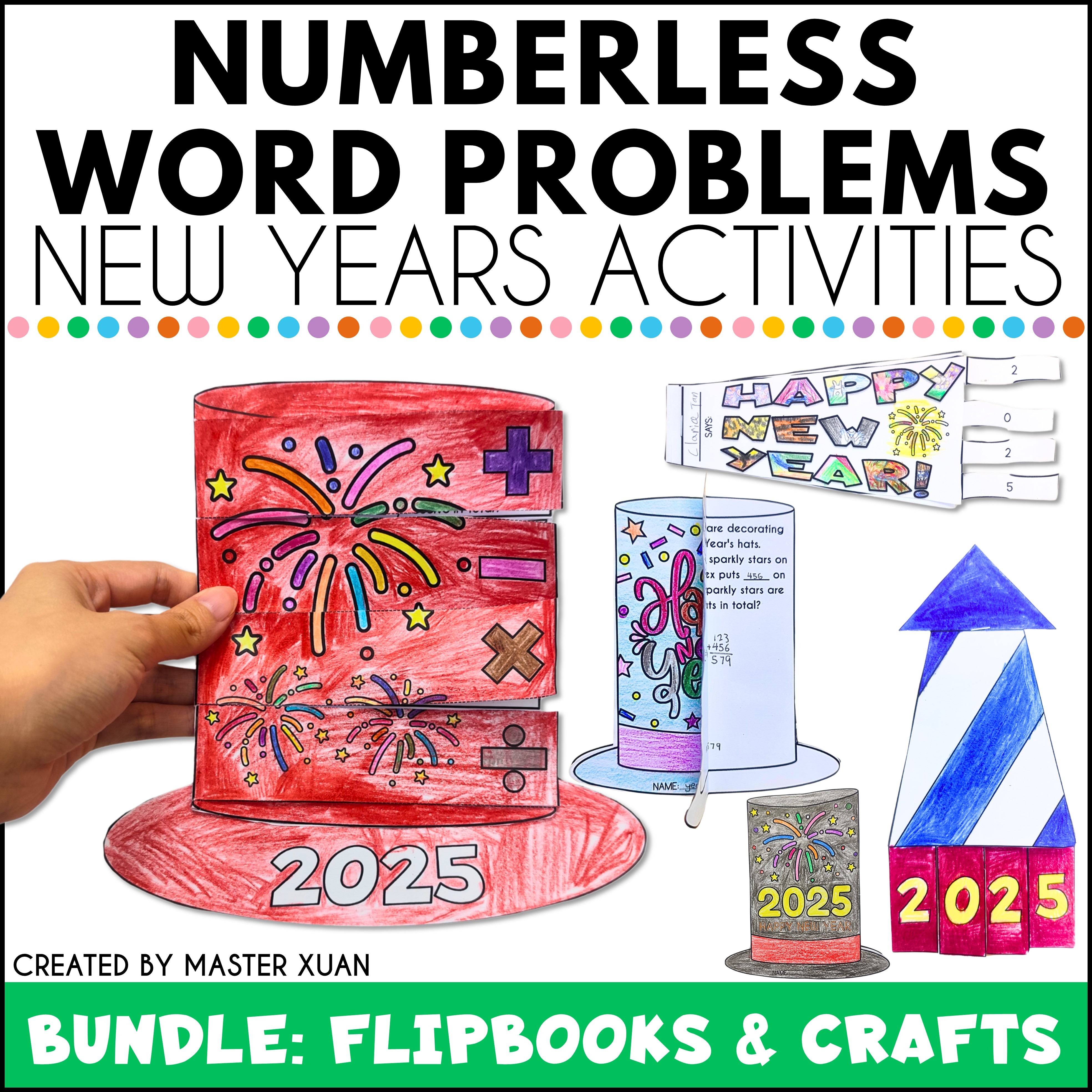
Remember, small steps can lead to big improvements.
So let’s make this year a year of growth, learning, and mathematical success!
What is your new year resolutions for teachers? Share with us below!
Happy New Year and happy learning!
Related Read: 5 New Year Math Activities To Kickstart The Year
Here are some pins that you can save to bookmark this post: 20 New Year Resolutions For Teachers And Students To Improve Math Learning. Save them to your Pinterest Board now! ↓
